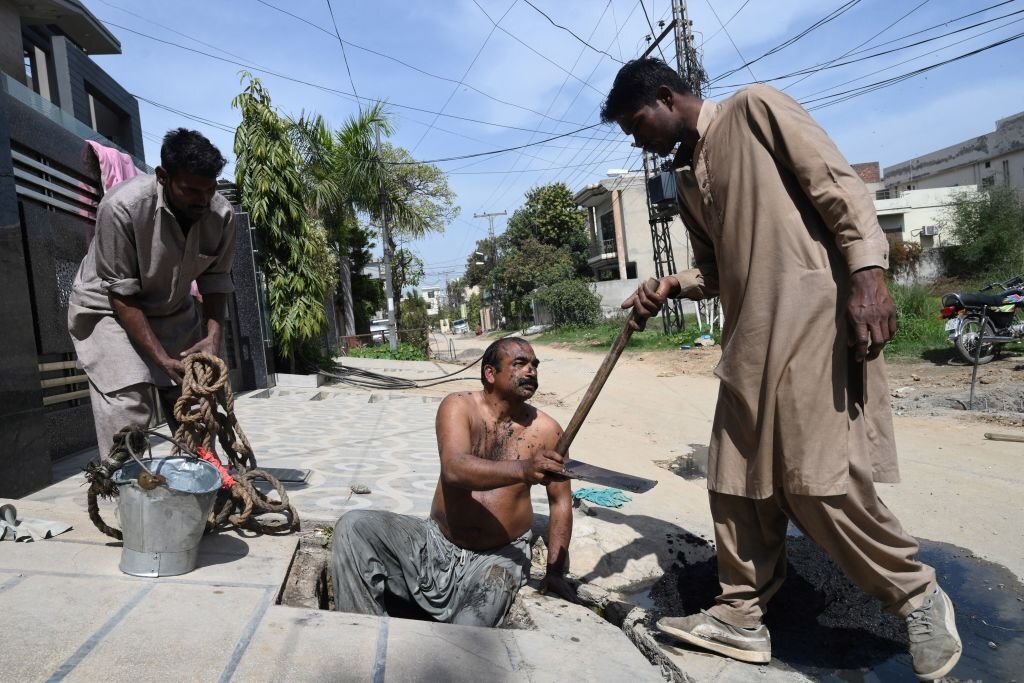
By Laiba Khan
With its old buildings and busy streets, Lahore is the culture heart of Pakistan. But the people who work as sanitary workers are hard at work without being seen.
They do important work, but they are often forgotten. People sometimes forget how important they are for keeping waste systems running smoothly. To sum up, urban policy should take into account their problems and successes in order to make their working conditions better and recognise how important they are to improving people’s health.
Every day, sanitary workers put themselves in danger at the job. If they go near trash that hasn’t been picked up, they could get hepatitis, leptospirosis, or tetanus. Doctor Amira Khan, a public health expert, says that workers in these places are more likely to have serious health problems because they don’t have the right safety gear or training (Khan, 2023). Also, workers are exposed to chemicals that could kill them, like methane and hydrogen sulphide, which is totally unacceptable from a global worker safety point of view.
Sometimes, the government doesn’t follow the rules for dealing with trash. Punjab’s plan to clean up was announced in 2015, but it is still in its early stages and hasn’t been fully put into action yet. This is an example of a long wait that doesn’t take into account changes in the job market or new technologies. The World Bank says in its 2024 report that these delays are bad because “not updating and enforcing sanitation policies puts not only the health of these workers but also the public at risk.” Some employees still have to use old, broken down ways because technology hasn’t made it to every part of the field yet.
Any plan to improve Lahore’s cleaning services must include both new tools and training. These days, cleaning methods are safer and work better than ever. Studies that compare Singapore and Seoul say that using cutting edge technology and strict training programmes makes the workplace safer and more productive. The public health and urban planning fields need to put the health and happiness of these workers first and listen to their worries. Learn new things, see your doctor often, and get safety gear. It’s important that we respect and appreciate what they do to keep the city clean and healthy. We shouldn’t forget about the people who keep Lahore clean as the city grows and uses digital tools and big city planning.
In addition to cleaning, this group makes sure that everyone in the city is safe. That’s not all this story is about. For the sake of the sanitary workers safety, respect, and honour, justice must be done. We owe it to the history of our city to keep them working and always recognise how important they are.
About Author
The writer is a community journalist and student of journalism at Beaconhouse National University, Lahore.




